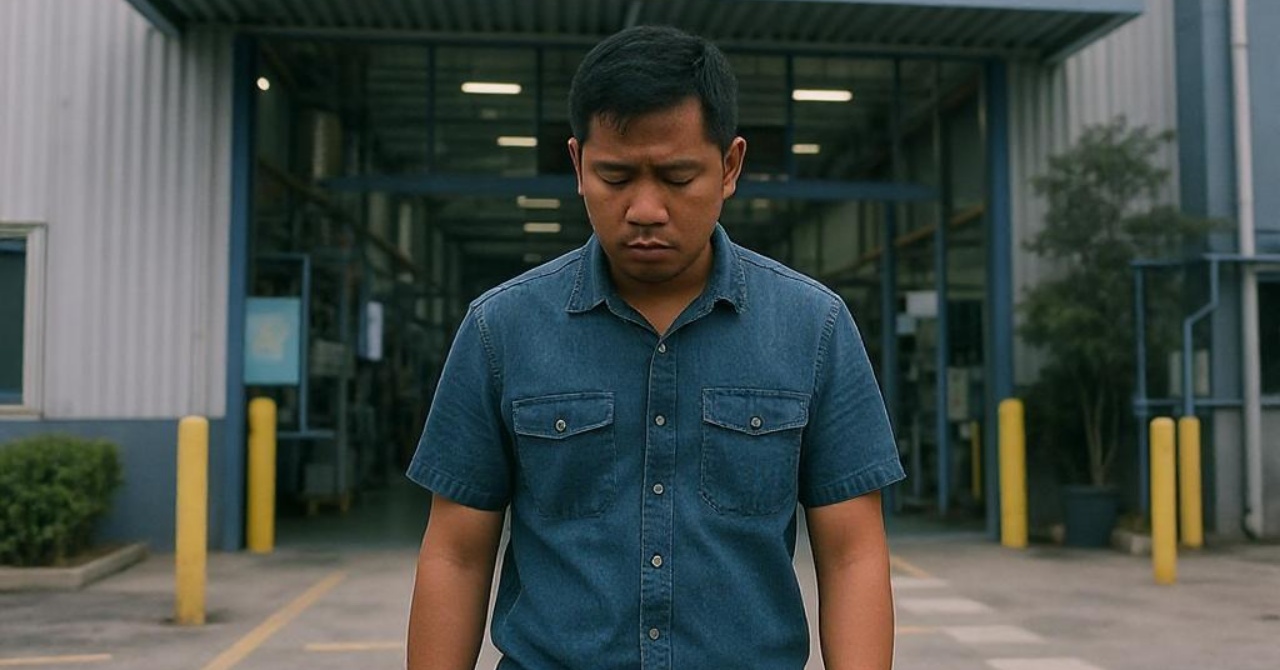When I first thought about working in Taiwan, I imagined what most OFWs do: a decent salary, steady hours, and a chance to finally save enough for a better future. But factory life taught me something fast—if you’re expecting easy money, you’re in for a rude awakening.
Here’s why:

Starting Wages Don’t Stretch Far
You’d think a job abroad means instant financial freedom—but that’s not the case here. Many entry-level factory positions start around NT$25,000 to NT$30,000 per month. In places like Taipei or Taichung, that barely covers your rent, meals, and bills.
By the time you subtract:
- Dorm fees or shared apartment rent
- Utilities and internet
- Daily meals and groceries
- Health insurance
- Basic remittances
…you’ll find yourself scraping by. Easy money? Not quite.
Grueling Hours and Rotating Shifts
Twelve hours on your feet, five to six days a week. Sometimes overnight. Sometimes with only a few hours of rest before you’re back again. On top of that, mandatory overtime is often required during production peaks.
The result?
- Broken sleep cycles
- Weak social life
- Burnout by your third month
This is the reality of the so-called “stable” work in many Taiwanese factories.
Language Barrier Slows Progress
If you’re not confident in Mandarin or at least familiar with basic workplace phrases, you’ll struggle. Supervisors may issue instructions you don’t fully understand. You could miss:
- Safety briefings
- Shift schedule changes
- Performance-related feedback
…and even worse, you could accidentally violate policies or mess up production, costing you penalties or your job.
Physical Toll and Health Risks
It’s not just long—it’s hard. You’ll repeat the same motion hundreds of times per shift, stand for hours, and sometimes work in noisy, chemical-heavy environments.
Common health issues include:
- Back and joint pain
- Carpal tunnel syndrome
- Chronic fatigue
For many of us, that takes a toll that no paycheck can erase.
Limited Skill Development
Most tasks involve repetitive, low-skill labor—tightening the same screw, inspecting the same part, packing the same box. While it’s honest work, it doesn’t exactly build a future.
There’s usually:
- No upskilling programs
- No certifications
- No clear career path
Unless you actively seek training outside your job, your growth stalls while the years pass.
Dormitory Rules and Isolation
Many factories offer housing—but don’t expect freedom. Dorm life often comes with:
- Curfews
- Guest restrictions
- Shared rooms
- Security checks
After a draining shift, it’s tough to feel truly at home. Free time becomes a countdown to lights-out, and homesickness grows fast when you can’t unwind the way you want to.
Hidden Fees and Contractual Fine Print
Even if the salary looks okay, read the fine print. From the moment you apply, you may face:
- Agency placement fees
- Health insurance premiums
- Dormitory rent
- Meal deductions
- Fines for minor mistakes
The deductions can leave you with 10–20% less than expected. And in some cases, even termination fees apply if you break your contract early.
Facing the Reality Check
If you’re banking on a quick fix, factory work in Taiwan will knock you back to reality. It’s not a golden shortcut—it’s a path that demands sacrifice, resilience, and low expectations for comfort.
Before applying, ask yourself:
- Can I handle rotating shifts and physical fatigue?
- Am I okay with limited personal space?
- Do I have a plan for growing professionally beyond the factory?
If your answer is “no,” it might be time to rethink the journey.
Beyond the Factory Grind
Not all OFWs stay in the factory loop. Some move into:
- Caregiving roles with higher wages and clearer pathways to residency
- ESL teaching with flexible hours and professional development
- Skilled trades like CNC operation or maintenance with training options
Others build side hustles or save steadily until they can invest back home in a small business, property, or further education.
The key? Not settling for what’s easy—but finding what’s right.
Frequently Asked Questions
Can I still apply for a factory job in Taiwan if I don’t speak Mandarin?
Yes, but expect challenges. You may get hired, but you’ll need to pick up basic Mandarin quickly to follow instructions, avoid mistakes, and eventually access better roles.
Is it possible to save money as a factory worker in Taiwan?
It is—but not immediately. You’ll need to budget strictly for the first 6–12 months, avoid unnecessary spending, and consider shared housing or meal planning.
Are there better-paying alternatives to factory jobs in Taiwan?
Yes. Roles like caregiving, welding, machine operation, and ESL teaching often pay more—especially if you have experience or language skills.
What are the common deductions from my salary?
Deductions may include health insurance (NT$826/month), dorm rent (NT$1,500–NT$4,000), meals, taxes, and agency fees. Always ask for a breakdown before signing.
Video: Realidad as factory worker dito sa Taiwan ! #1 hits me harder. #ofwintaiwan
BeliJr captures the hidden weight Filipino factory workers carry in Taiwan—beyond the machines and timecards.
He recalls how his kindness was mistaken for weakness, exposing the quiet toll of giving too much.
The video zeroes in on how setting limits earns judgment, making emotional survival just as tough as the job itself.
As comments pour in, fellow OFWs echo his experience—each one a quiet reminder that many carry the same load.
This isn’t just content—it’s a mirror many didn’t know they needed.
